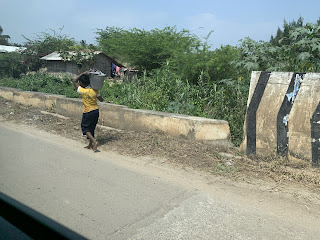A life of Privilege
Since being in India, we have observed the handling of the pandemic during its rise, the claims of voter fraud, the raid on the capital, the inauguration of a new President and the roll out of the vaccine. It’s interesting to see claims by friends and family on both sides of each issue and the reports that are given internationally about the events. While my intent isn’t to get political in this post, many of the latest happenings have had a deep political thread intertwined in them.
As I sit here watching the mayhem, it feels like a different world than I knew. The virus has brought with it damage far beyond the deaths, the loss of jobs and stifling of freedoms. It has brought hatred. Ears and eyes closed to others opinions. Mouths quick to condemn and belittle with hearts slow to forgive and accept.
The world is watching America tear itself apart from the inside. We were the nation that everyone admired. They strived to emulate. I fear this is no longer the case.
We are a land of privilege. Our daily tasks are made easier with modern conveniences: dishwashers, washing machines, computers, cell phones. We expect to wake each morning to hot water in our showers. We turn 16 and know we will learn to drive a car either our parents’ or for most teenagers, their own. The students at school with a cell phone in their back pocket, even at the elementary age, is more than those who are without. High school graduates know the world is theirs. Education isn’t valued but rather another task on their rise to the top. Most families own a home, more than one car, and take a vacation each year.
Youth are taught that they should expect more than their parents and that they shouldn’t have to struggle like their parents did. We’ve forgotten that the struggles we overcame taught us valuable lessons. Lessons that our children need to learn, lessons that our country needs to learn. If we all erase our past, we have to erase what makes us who we are, what we have become.
As I drive to the market I see women washing clothes on rocks. Others are carrying water in plastic containers on their heads so they can boil it to have something to drink. Their homes are without running water, sewer and electricity. Typically students go to school 6 days a week. Education is valued as it provides a way up in life. Since last March, most students haven’t stepped foot in a school and online school isn’t available to kids since they don’t have their own cell phones. A woman we know is a CPA. She makes $220 a month! You can say that everything must be cheap here but it’s not. We spend just as much as we did in the US for food and we don’t buy very much meat or any unusual items. A house here is $300,000, so apartments are popular as well as multiple generations living in the same space. Most people walk, use public buses or own a scooter, for their whole family to ride on. These people would all love half of what we have.
What do Americans want? Student loans forgiven, lower home interest rates, financial relief from the pandemic, gun and ammo taxes, federal health care, for everyone to be treated the same, legalized marijuana. What we already have isn’t enough. We want more. It’s time to remember what we have, reach out to those around us who are in need, and to open our hearts. What really brings us happiness isn’t possessions or status. It’s friends and family, memories, and peace. Let us be quicker to bite our tongue, slower to be offended, more willing to help a stranger, and less demanding in our wants.





Comments